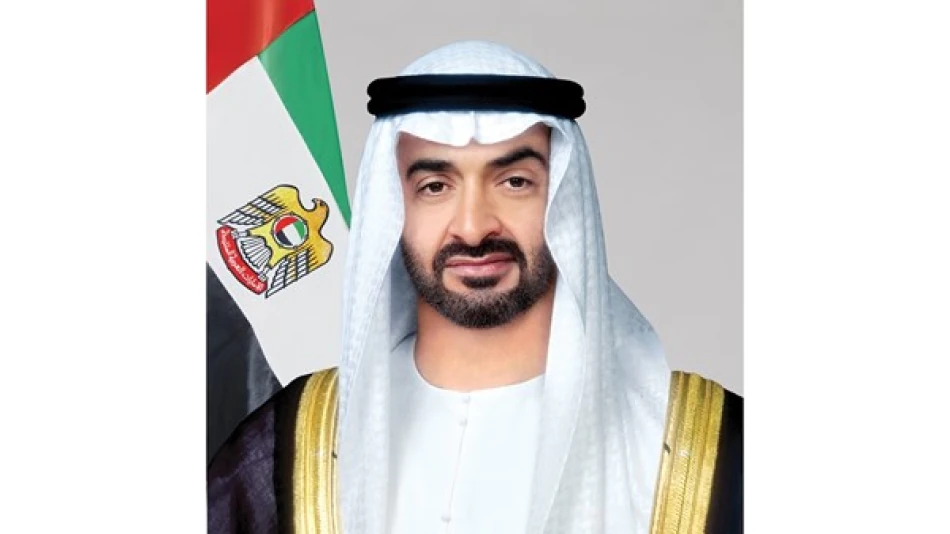
UAE President Embarks on State Visit to Turkey, Strengthening Diplomatic Ties
UAE President's Turkey Visit Signals Strategic Pivot in Middle East Diplomacy
UAE President Sheikh Mohammed bin Zayed Al Nahyan's state visit to Turkey beginning Wednesday, July 16, marks a significant diplomatic milestone that could reshape economic partnerships and regional alliances across the Middle East. The high-level talks with Turkish President Recep Tayyip Erdogan are expected to focus on bilateral cooperation, development priorities, and shared regional concerns.
From Rivalry to Partnership: The UAE-Turkey Reset
This visit represents a dramatic turnaround in UAE-Turkey relations, which reached a low point during the 2010s over competing regional policies. The two nations found themselves on opposite sides of conflicts in Libya and Syria, while Turkey's support for Qatar during the 2017-2021 Gulf blockade further strained ties with the UAE.
The diplomatic thaw began in earnest in 2021, accelerated by economic pragmatism and shifting regional dynamics. Turkey's economic challenges, including currency volatility and inflation, have made UAE investment particularly attractive, while the UAE seeks to diversify its partnerships beyond traditional Western allies.
Economic Implications: A New Investment Corridor
Strategic Sectors in Focus
The UAE has already demonstrated its commitment to Turkish markets through significant investments in real estate, technology, and infrastructure. Turkish data shows UAE foreign direct investment increased by over 300% between 2021 and 2023, positioning the Emirates as a key economic partner.
Energy cooperation presents another avenue for collaboration. Turkey's strategic location as an energy transit hub aligns with the UAE's ambitions to expand its energy trading capabilities beyond traditional oil exports, particularly in renewable energy and hydrogen.
Regional Competition and Opportunities
This partnership also reflects broader regional competition. As Saudi Arabia pursues its Vision 2030 diversification strategy and Egypt seeks new investment sources, the UAE-Turkey axis creates an alternative economic corridor that could challenge traditional regional hierarchies.
Geopolitical Calculations: Balancing East and West
The timing of this visit is particularly significant given Turkey's complex relationship with NATO allies over its stance on the Russia-Ukraine conflict and its evolving ties with Russia. The UAE's neutral position on global conflicts makes it an ideal partner for Turkey's multi-alignment strategy.
Both nations share similar approaches to regional engagement, preferring economic leverage over military intervention. This pragmatic diplomacy contrasts with more confrontational regional powers and could establish a new model for Middle Eastern statecraft.
Market Implications: What Investors Should Watch
Financial markets will likely monitor several key areas following this visit. Turkish assets could benefit from increased UAE investment commitments, particularly in infrastructure and technology sectors. The Turkish lira has historically responded positively to major foreign investment announcements.
For UAE markets, deeper Turkish ties could open new opportunities in manufacturing and logistics, potentially reducing dependence on Asian supply chains. The UAE's position as a regional financial hub could also benefit from increased Turkish corporate activity.
Looking Ahead: A New Regional Order
This state visit represents more than bilateral diplomacy—it signals the emergence of a more flexible, economically-driven approach to regional partnerships. Unlike the ideological alignments that dominated Middle Eastern politics in the 2010s, this relationship prioritizes mutual economic benefit and pragmatic cooperation.
The success of UAE-Turkey normalization could serve as a template for other regional reconciliations, potentially reducing tensions that have hampered economic integration across the Middle East. As both nations face the challenges of post-oil economic diversification and regional stability, their partnership may prove crucial for navigating an increasingly complex geopolitical landscape.
Most Viewed News

 Layla Al Mansoori
Layla Al Mansoori






